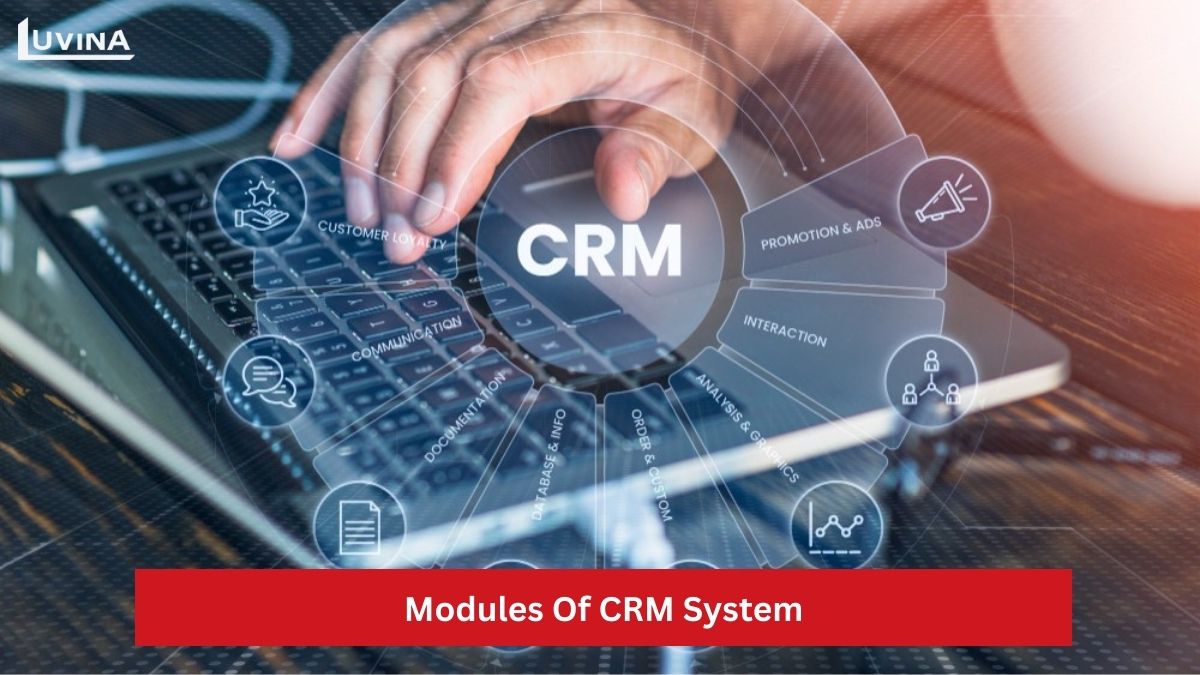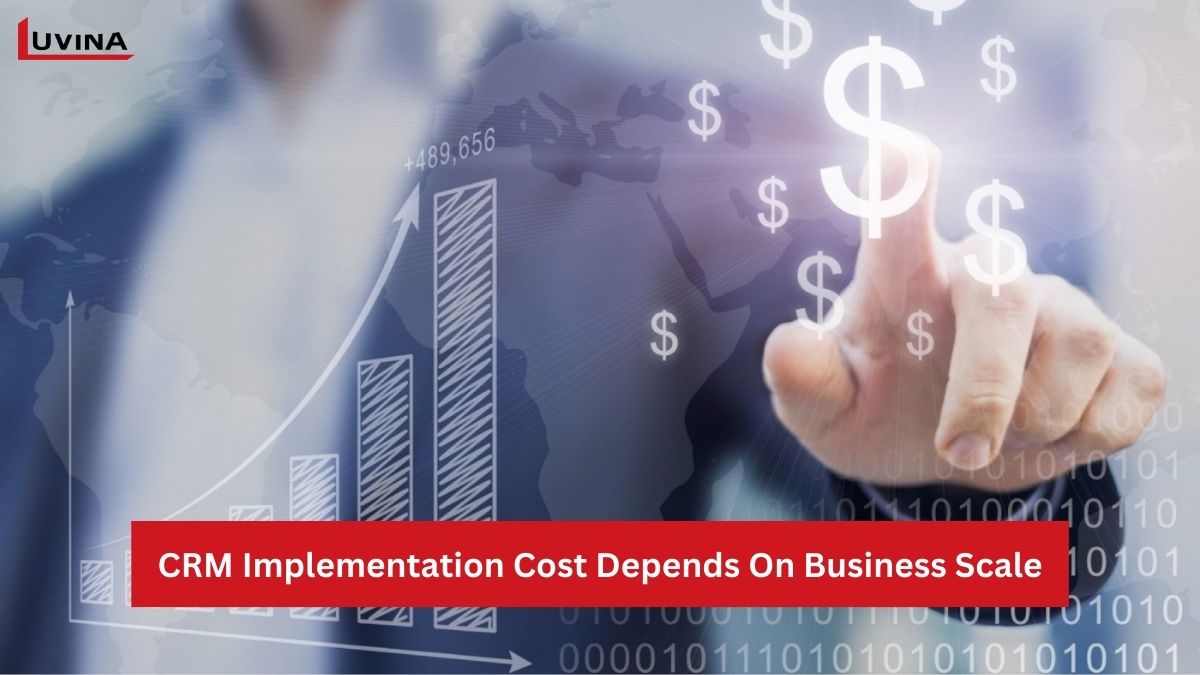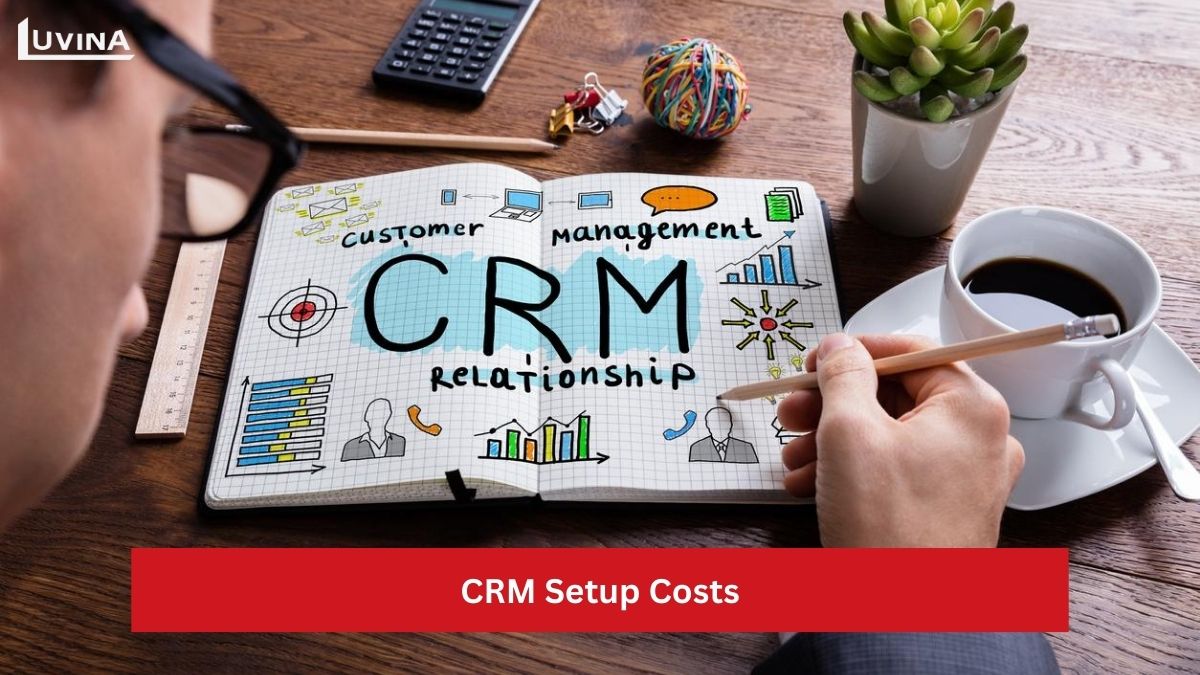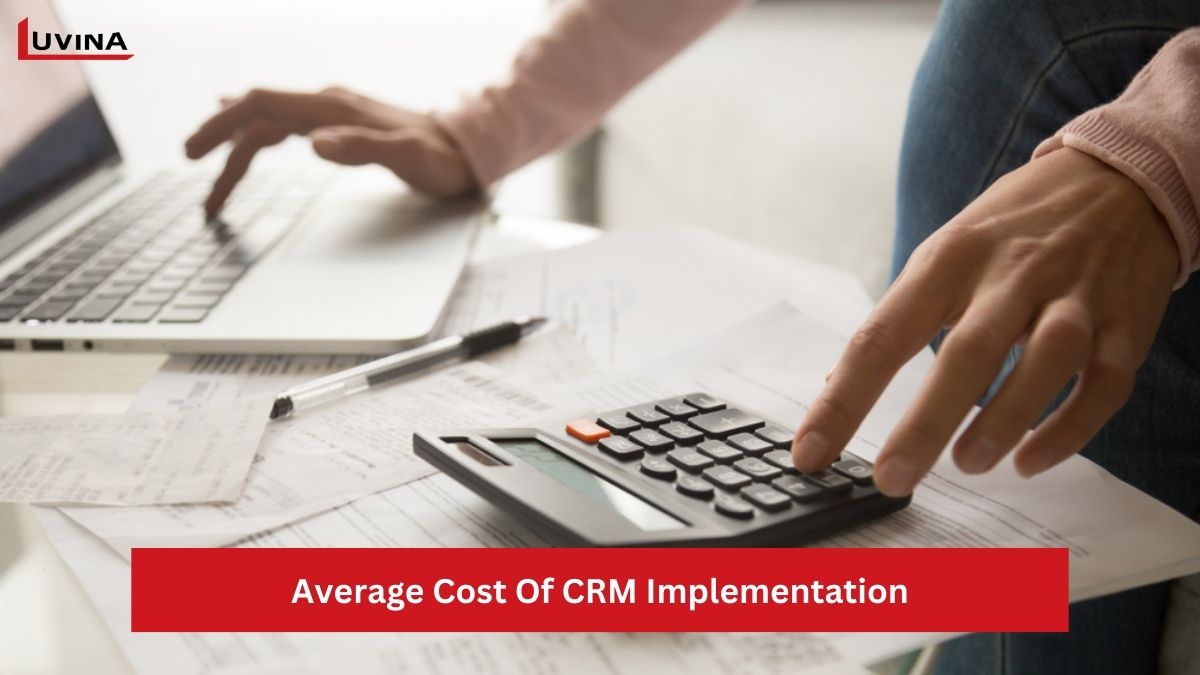Surveys indicate that in the last ten years, the billion-dollar CRM industry’s worth has quadrupled. This illustrates the significance of CRM and the growing appreciation that companies have for this platform.
However, the cost of implementing a CRM system is one of the major barriers preventing businesses from adopting it. Because CRM costs are not straightforward and can easily exceed budgets due to hidden expenses during implementation,.
So, how much does CRM implementation cost? What does that cost include, and what factors can affect CRM implementation costs? Let’s find the answers to these questions in the article below.
Factors Affecting CRM Implementation Costs
The cost of implementing a CRM system is not fixed but varies depending on each case and project. If you are budgeting for your business’s CRM implementation project, here are some factors that will impact the cost that you should consider:
1. Software modules
A CRM platform typically includes some basic features such as campaign management, order processing, call management, forecasting, workflow automation, maintenance, etc. The more features (modules) and complexity, the higher the implementation cost.

2. Timeline
Many CRM system implementation partners charge by the hour. Therefore, the longer the project takes, the higher the cost. To budget for this, you can multiply the number of hours required to complete the project by the hourly rate of developers (or the specific cost framework of the partner) to get an accurate figure.
3. Team composition
For complex projects, you’ll need a team of highly skilled professionals. The cost of hiring high-quality personnel also affects the cost of implementing the CRM system. Additionally, where developers are based can impact costs. For example, technology experts in Asia may have lower hourly rates compared to those in Europe.
4. Business scale
The number of users in a CRM system affects the installation charge as well. Consequently, the cost increases with the size of the business and the number of people utilizing the CRM. CRM costs about $12 per user each month for small businesses. Larger businesses with more demanding needs may find the monthly cost to be between $50 and $150 per user. If you’re utilizing pricey software, you may have to pay $300 or more per user each month.
Because of this, you need to determine how many users the CRM system will have when planning your budget for CRM implementation costs. Accurately ascertaining the number of users helps you not only to project the costs associated with putting the CRM system into place but also to choose the optimal software to save costs and optimize your budget.

4 Hidden Costs of Implementing CRM
One of the things that makes businesses hesitant when implementing CRM is the hidden costs. Hidden costs are often small and easily overlooked, but they can cause the project to exceed the budget threshold. Here are some hidden costs you should pay attention to when planning for CRM implementation:
1. Customization of the system
In some cases, standard service packages may not have enough features to meet the specific needs of a business. Businesses may need to incur additional costs to adjust and add specific functions. The more complex the customization, the higher the customization costs.
2. Integration with existing solutions
Integrating CRM with existing solutions can help businesses achieve higher efficiency. Some solutions commonly integrated with CRM include telephony, point-of-sale devices, etc. Integrating CRM with these solutions will increase the cost of implementing the CRM system.
3. Maintenance and employee training
Technical support is necessary after the implementation phase to ensure smooth system operation. Additionally, businesses also need specialized support to familiarize employees with the new system and how to apply CRM in their practical work. Some CRM implementation partners will charge for training and maintenance either in the basic package or provide it for free. You need to clarify this issue to avoid exceeding the budget.

4. Certain CRM features
Some CRM providers offer additional features as add-on programs, which may come with additional fees. On the other hand, there are also some features included in the subscription fee, but additional fees may be required to use advanced features. These are all hidden costs that can affect the cost of implementing the CRM system.
Average Cost of Implementing a CRM System
The cost of adopting a CRM system is difficult to pin down because every system is designed and implemented differently. In general, the following categories of costs will be included in the structure of CRM installation costs:
1. CRM subscription fees
This makes up a significant portion of the price of setting up a CRM system. You’ll pay between $1,500 and $36,000 year on average to use CRM services. The broad pricing range is caused by the fact that CRM membership rates are based on a variety of variables, including features, package kinds, and user count.
For example, starter packages are very affordable but often lack basic features like email sequences, custom reporting, etc. These packages will have much lower costs compared to more feature-rich packages with better customer support services.
2. Cost for setup, training, and data migration
There is usually a setup price, data migration costs to link the CRM with existing company processes, and staff training costs associated with CRM implementations. Usually, this cost falls between $1,000 and $10,000.

3. Reduced productivity
It’s not easy to quantify the reduced productivity, but it’s still a part of the CRM implementation cost. During the system deployment, your employees may still receive their usual salary, but their speed and efficiency may decrease due to training or getting accustomed to the new system. The cost of reduced productivity can range from $3,000 to $12,000.
To get a more accurate figure, try calculating the salary of employees and assuming that they can only work at half speed and productivity until the new system becomes operational. If you want to reduce the cost of CRM implementation, you need to choose a CRM that your employees can engage with and become familiar with in the early stages.
4. Sales tool upgrades
CRM isn’t a tool that directly boosts your sales figures. To increase sales, you need to update your system and add or upgrade essential sales tools. These tools will enhance the service delivery process, order fulfillment, and sales figures.
One of the costs related to upgrading sales tools that you need to consider is VoIP and telephony. Since making calls is a crucial sales activity, you need to ensure you allocate enough budget for VoIP services. On average, fees for VoIP and telephony will range from $1,200 to $6,000.
Integration of Services and Advanced Tools
The fundamental features of CRM might not always be sufficient to suit the demands of the company. It is necessary to link third-party services and technologies with CRM if you wish to reap its benefits. A single integration could cost up to $18,000, while others are free. The quantity and kind of interconnections will also have a significant impact on the cost of CRM system implementation.
So, the cost of implementing a CRM system includes many different small expenses based on the scale and requirements of the business. According to research, a small business with up to 5 users will need to pay from $25 to $75/user/month for a basic package. Meanwhile, a medium-sized business with 10 – 100 users will have to pay around $50 to $150/user/month for an advanced package. There are even custom packages available for businesses with over 100 users based on specific business requirements.
On average, the CRM implementation process can cost from $10,000 to $20,000 (or even more). This cost includes deployment, consulting, training, and productivity loss.

Final thoughts
The information about the cost of implementing a CRM system may cause concerns for many businesses. However, instead of focusing on how much CRM implementation will consume, consider the results that a CRM system can bring.
CRM implementation is a complex process with many hidden costs, easily exceeding the budget. If you want to deploy CRM successfully and optimize costs, collaborate with Luvina.
With 20 years of experience providing IT services, Luvina has worked with numerous businesses of various scales in Vietnam, Japan, and beyond. Luvina’s goal is to deliver modern technology products and top-notch technical services, helping customers complete CRM implementation projects as expected. We are committed to providing high-quality solutions with the best cost efficiency.
Contact Luvina now for detailed advice on a tailored CRM implementation service roadmap for your business.









Read More From Us?
Sign up for our newsletter
Read More From Us?
Sign up for our newsletter